The Integration Paradox
Proposal of a New Experimental Design
Merlin Schaeffer & Judith Kas (WZB)
2023-04-21
Tocqueville's Paradox
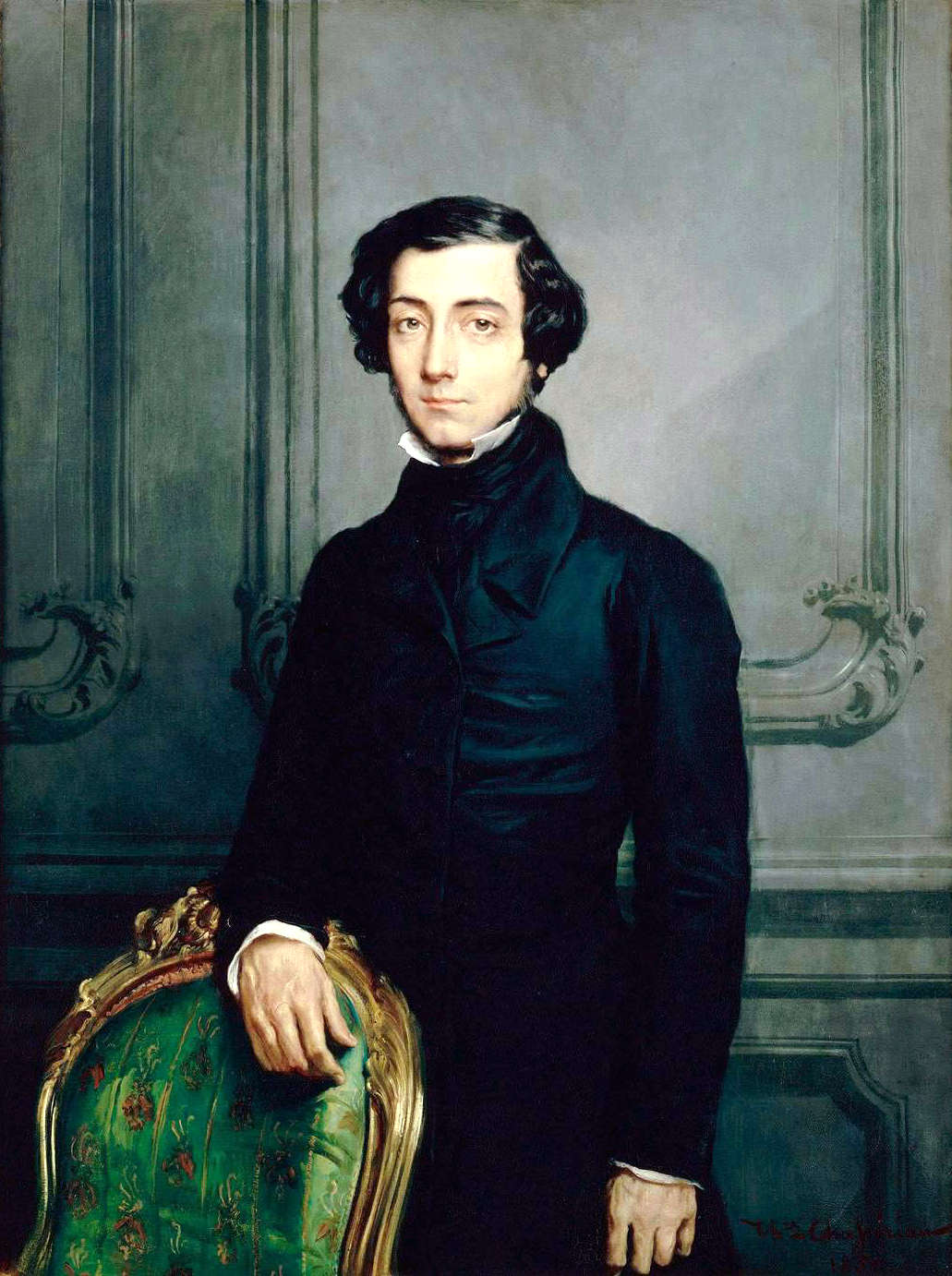
The hatred that men bear to privilege increases in proportion as privileges become fewer and less considerable, so that democratic passions would seem to burn most fiercely just when they have least fuel.
[...]
When all conditions are unequal, no inequality is so great as to offend the eye, whereas the slightest dissimilarity is odious in the midst of general uniformity;
[...]
the love of equality should constantly increase together with equality itself [...].-- Alexis de Tocqueville (2015 [1840])
Tocqueville's Paradox

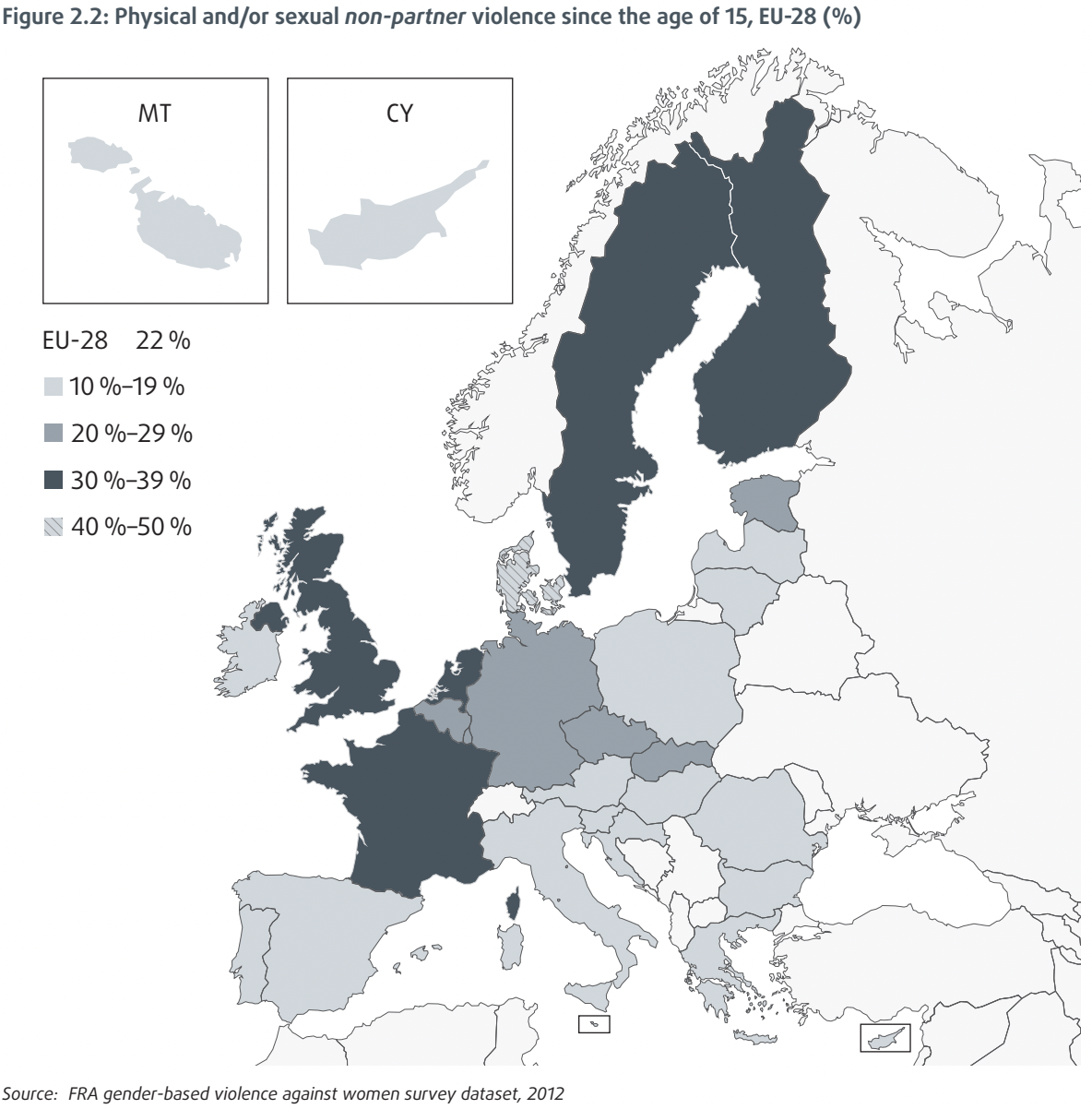
Source: European Union Agency for Fundamental Rights. (2014)
Tocqueville's Paradox

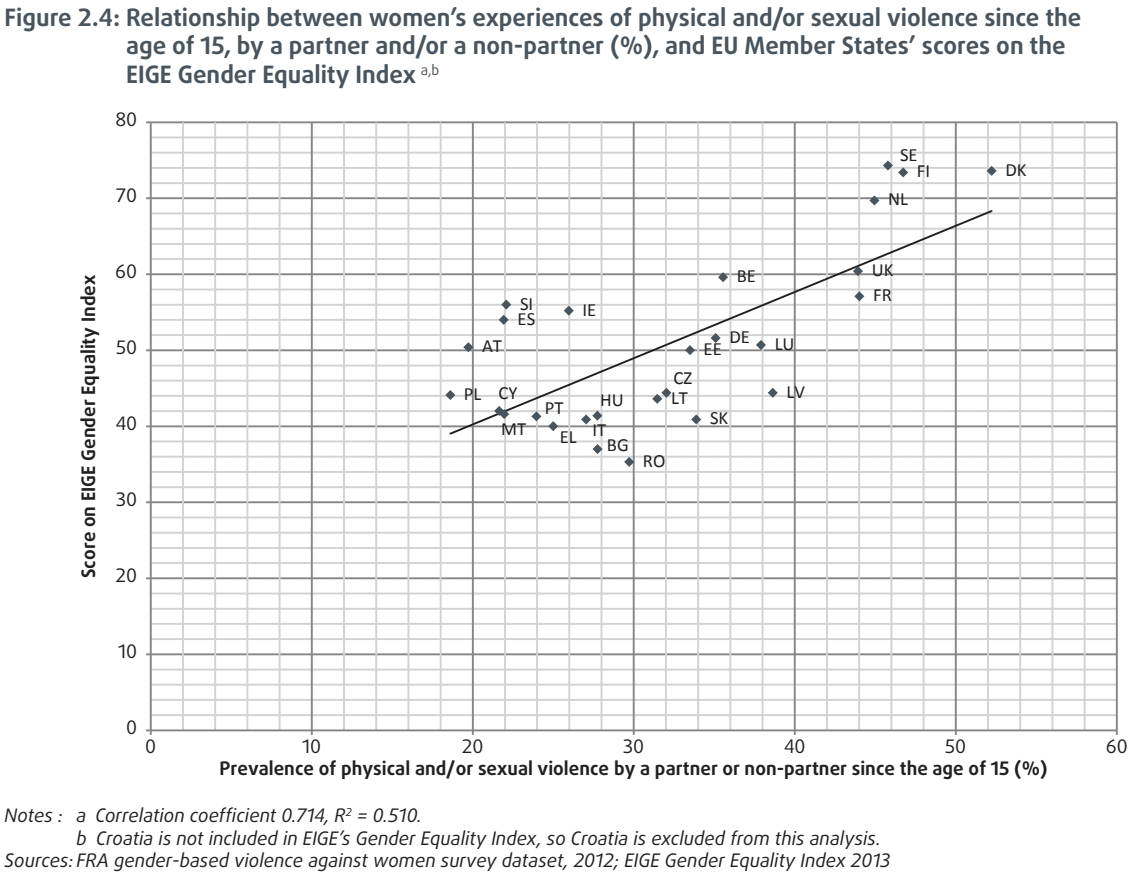
Source: European Union Agency for Fundamental Rights. (2014)
The Integration Paradox
 Single family home in Berlin's suburb Rudow
Single family home in Berlin's suburb Rudow
Do immigrants and the children of immigrants who established themselves among the middle-class mainstream report less discrimination than those who remain at the margins of society?
The Integration Paradox
 Single family home in Berlin's suburb Rudow
Single family home in Berlin's suburb Rudow
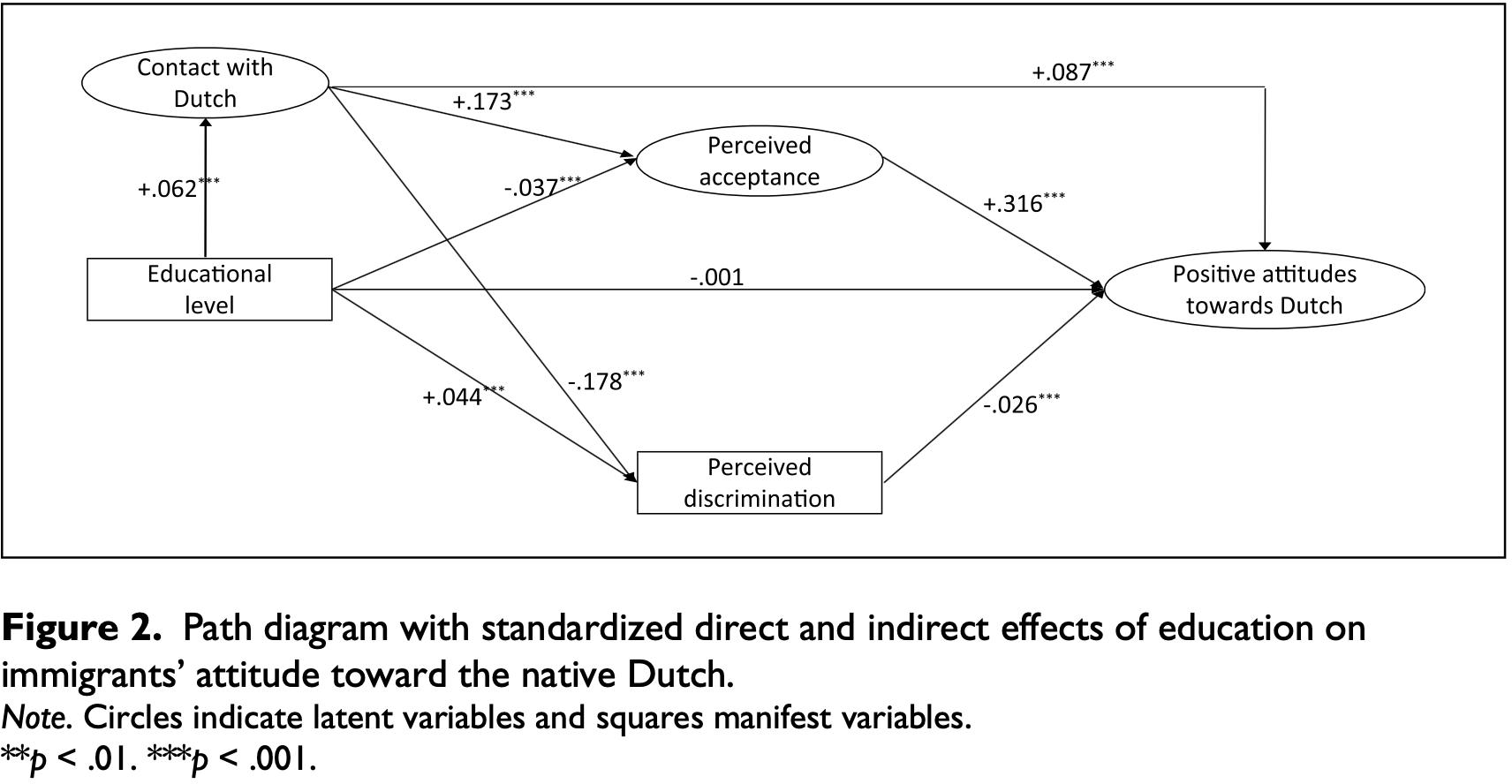
Source: Verkuyten (2016)
Synthesized theoretical model
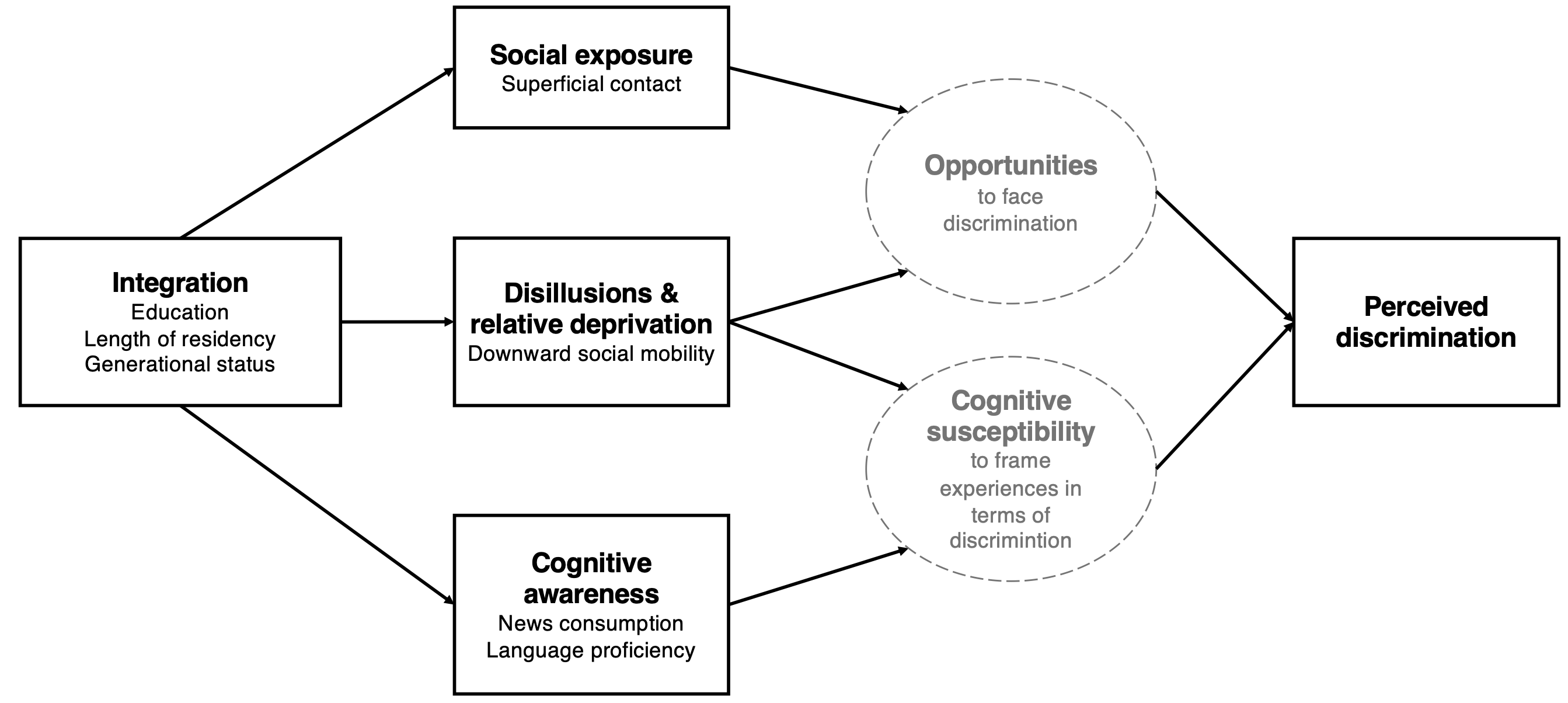
Fundamental flaw of prior research
False Consciousness: Are the less integrated under-perceiving the true extent of discrimination they face?
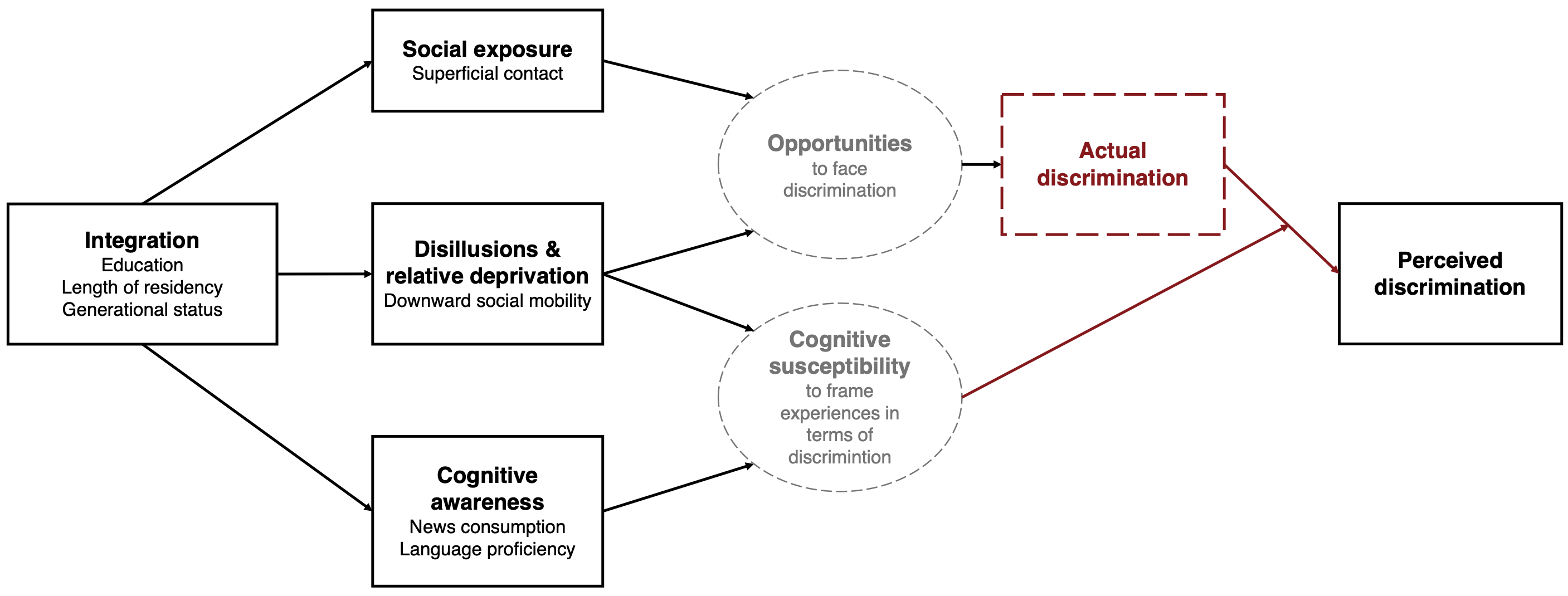
Limitation of correspondence studies
Fake CV's have no experiences and feelings
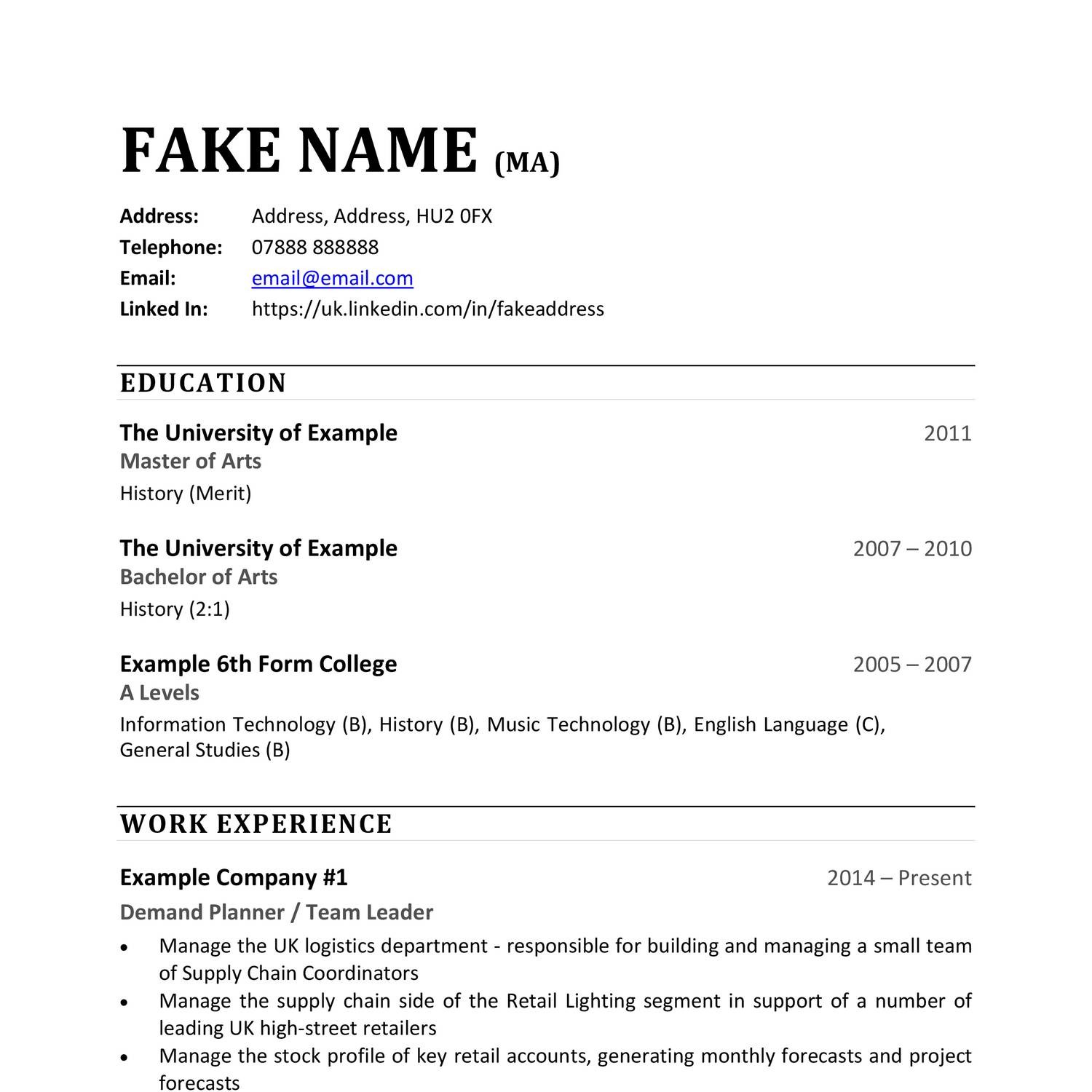
False Consciousness: Are the less integrated under-perceiving the true extent of discrimination they face?

A new experimental design
The Trust game
Two persons' mutual evaluation of their trustworthiness
We'll have endowments of €10
Respondents will play both roles & we define actual role randomly afterwards

A new experimental design
The Trust game
Two persons' mutual evaluation of their trustworthiness
We'll have endowments of €10
Respondents will play both roles & we define actual role randomly afterwards

Non-anonymous games
Profile photo & spoken sentence
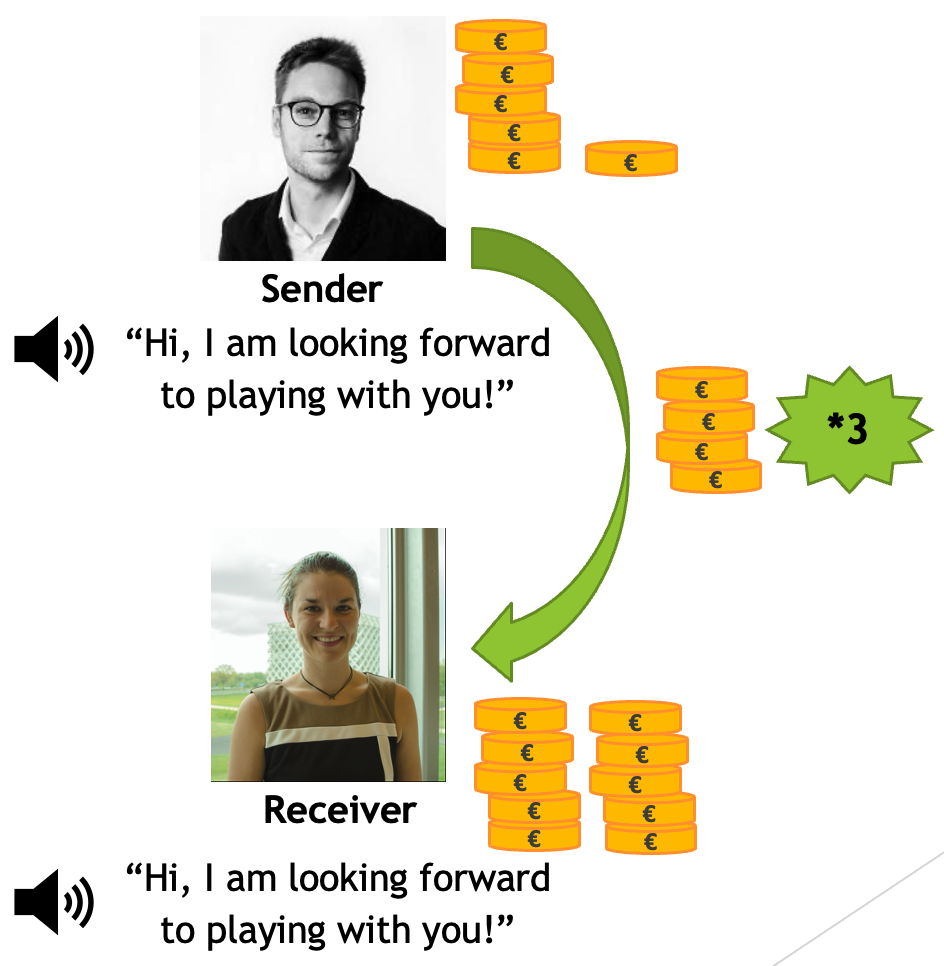
Actual discrimination
Non-anonymous games
Profile photo & spoken sentence

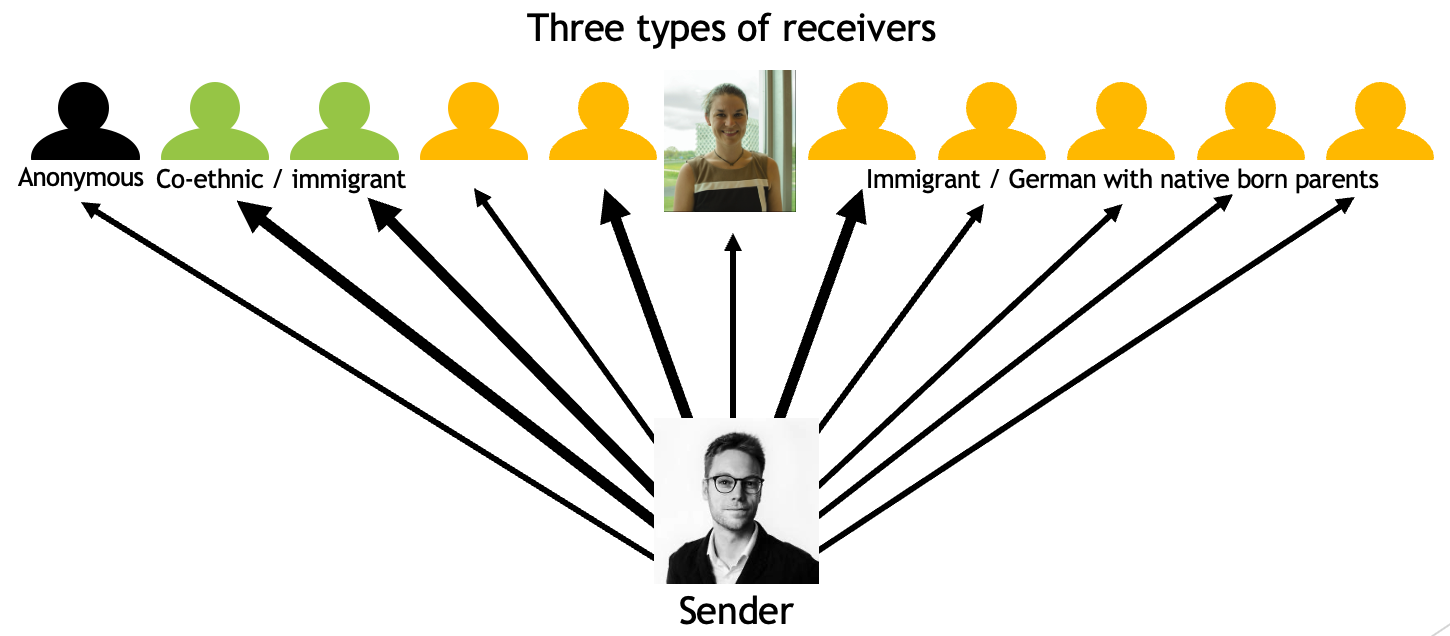
- €Judith−¯€Co-ethnics, or €Judith−€anonymous
- Single measure: May be ethnic or not.
- Aggregated across 10 game partners: Ethnic discrimination.
- After all 11 games: Which two of the overall ten (non-anonymous) games do you want to be paid out?
Expected & perceived discrimination
Non-anonymous games
Profile photo & spoken sentence

Expected discrimination After all games are played: What do you think,
- Expected Δ€ (incentivized, €4 for correct guess)
- how much did that game partner send you? → €3
- how much did that game partner send other players? → €5
- why did that game partner send you €2 less than the others?
- Do you think, that game partner chose your game as one of the two that are being paid out (incentivized, €2 for correct guess)
Perceived discrimination Three months later, respondents are informed about their aggregate personal and overall average payoffs.
- Why did you make less / more?
Implementation in three steps
1) Pre-game online survey
May 2021
- Photo & recorded sentence.
- Berlin, Hamburg, Cologne, Frankfurt, Munich.
- 1,500 Germans with native-born parents.
- 900 immigrants or children of immigrants.
- 600 Turkish immigrants or children of Turkish immigrants.
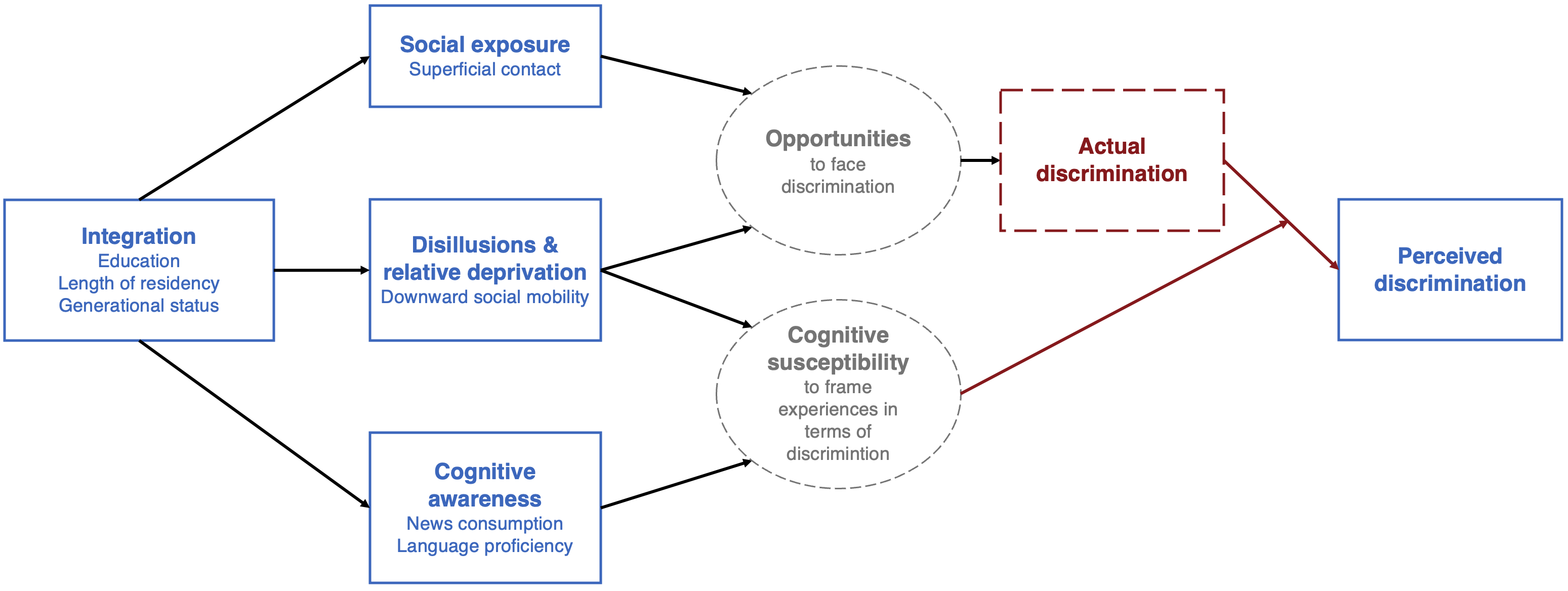
Implementation in three steps
2) Online trust games
October 2021
- Not simultaneously but strategy method.
- 1,000 Germans with native-born parents.
- 600 immigrants or children of immigrants.
- 400 Turkish immigrants or children of Turkish immigrants.
- Guaranteed €20, Average win €60, maximum €100.
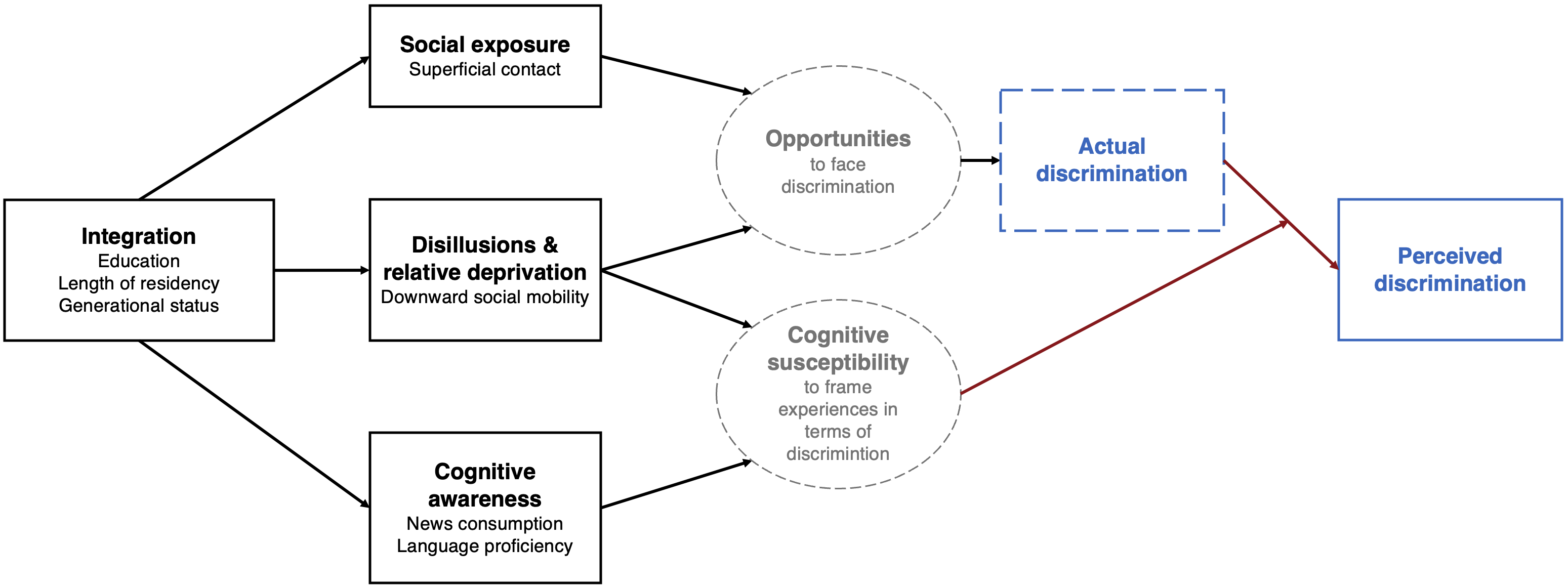
Implementation in three steps
3) Final survey
January 2022
- Information about personal and overall payoffs.
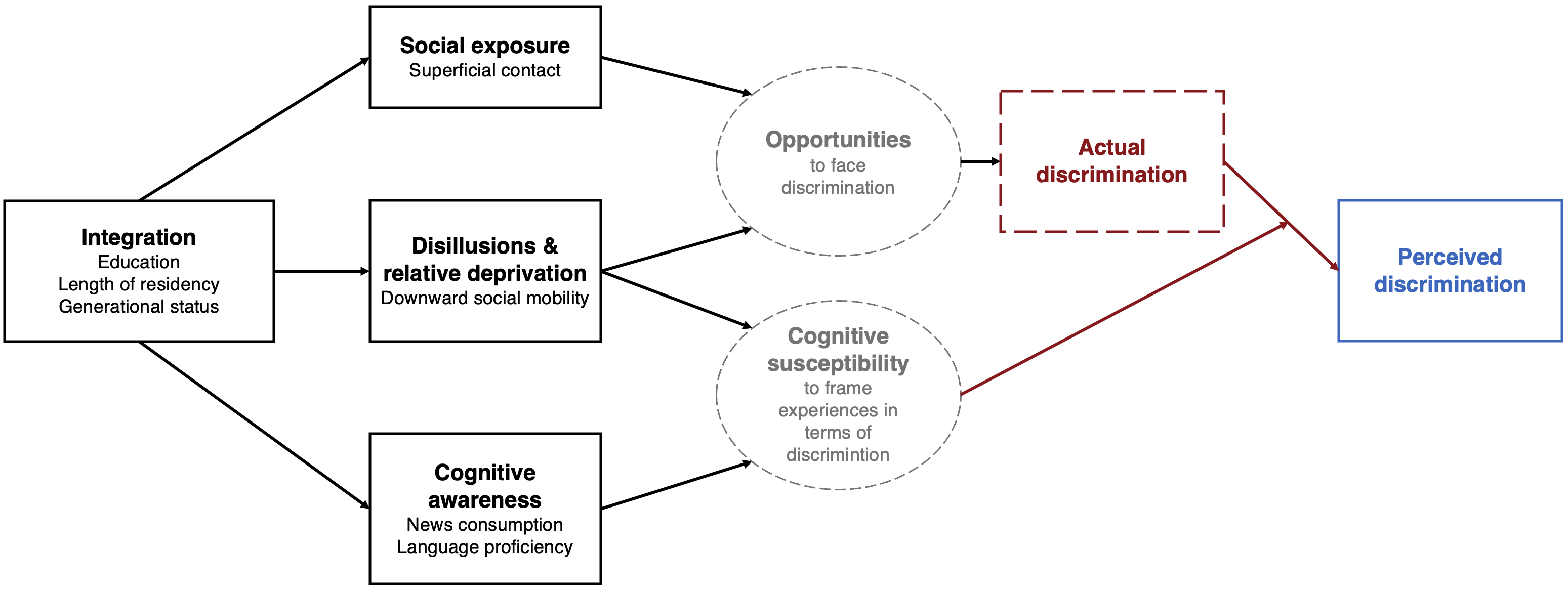
Envisioned data n = 1,500 X 8 = 12,000
| Minority | Pot. discriminator | €i−¯€j(Co-ethnics) | Exp. Δi€ | j selected i | i exp. selection | i Education | i ... |
|---|---|---|---|---|---|---|---|
| i=1 (Judith) | j=1 (Merlin) | -3 | -5 | 0 | 0 | ... | ... |
| i=1 (Judith) | j=2 | 0 | 0 | 1 | 0 | ... | ... |
| i=1 (Judith) | j=3 | 1 | 0 | 1 | 0 | ... | ... |
| i=1 (Judith) | j=4 | -1 | 0 | 1 | 1 | ... | ... |
| i=1 (Judith) | j=5 | -2 | 0 | 1 | 0 | ... | ... |
| i=1 (Judith) | j=6 | -4 | 0 | 1 | 0 | ... | ... |
| i=1 (Judith) | j=7 | 3 | 0 | 0 | 0 | ... | ... |
| i=1 (Judith) | j=8 | 0 | 0 | 0 | 0 | ... | ... |
| i=2 | j=1 (Merlin) | ... | ... | ... | ... | ... | ... |
| i=2 | j=4 | ... | ... | ... | ... | ... | ... |
| i=2 | j=9 | ... | ... | ... | ... | ... | ... |
| i=2 | j=10 | ... | ... | ... | ... | ... | ... |
Panel attrition
Problem:
Matching happens before Part 2, but not everyone will show up → incomplete sets.
- Consequences: Some data cannot be used if measure of actual or expected discrimination is missing.
Conclusion
- Tocqueville's paradox:
- Interesting phenomenon & maybe rather pervasive.
- Related to claims about false consciousness.
- No good toolbox to study these phenomena.
- The new experimental design:
- Arguably artificial.
- But first attempt to measure & predict individuals' under- and over-perceived discrimination.
- Mis-perceptions may also be used as predictor, e.g. of political mobilization.
Conclusion
- Tocqueville's paradox:
- Interesting phenomenon & maybe rather pervasive.
- Related to claims about false consciousness.
- No good toolbox to study these phenomena.
- The new experimental design:
- Arguably artificial.
- But first attempt to measure & predict individuals' under- and over-perceived discrimination.
- Mis-perceptions may also be used as predictor, e.g. of political mobilization.
Thank you for your attention!
References
European Union Agency for Fundamental Rights. (2014). Violence against women :an EU wide survey : results at a glance. LU: Publications Office.
Tocqueville, A. d. (2015). Democracy in America - Vol. I. and II. Read Books Ltd.
Verkuyten, M. (2016). "The Integration Paradox: Empiric Evidence From the Netherlands". In: American Behavioral Scientist, pp. 583-596.